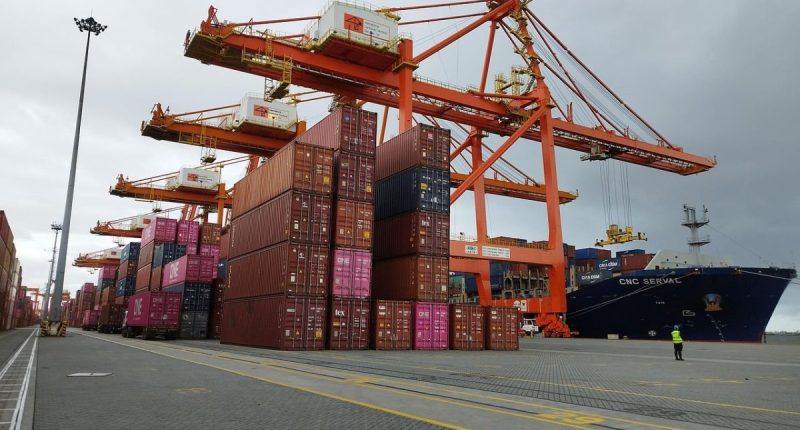Overview of the New Storage Policy
The Philippine Ports Authority (PPA) has revised its storage policy, which introduces a new timeline for the payment of storage charges for both loaded and empty containers. This adjustment is significant for all stakeholders in the logistics and shipping sectors, as it changes how storage fees will be calculated.
Details of the Revised Policy
Effective from August 21, 2025, PPA Administrative Order No. 005-2025 mandates that storage charges must now be paid earlier due to a revised assessment of the free storage period (FSP). Importantly, the storage charges themselves remain unchanged.
The new order aims to optimize the availability of port areas, thereby enhancing their efficiency. This is a critical move, especially as cargo volumes are on the rise and operational efficiencies become more vital in today’s fast-paced logistics environment.
Free Storage Period (FSP) Regulations
Under the new guidelines, the lengths of the free storage periods for various categories of cargoes now fall as follows:
- Import Containers: 5 days (120 hours)
- Export Containers: 4 days (96 hours)
- Foreign Transshipment: 15 days (360 hours)
- Inbound Domestic: 2 days (48 hours)
- Outbound Domestic: 2 days (48 hours)
- Shut-Out Domestic: 2 days (48 hours)
Commencement of the Free Storage Period
The revised FSP and assessment of storage charges will begin as follows:
- Import: On the actual day and time the container is discharged from the vessel.
- Export: On the actual day and time the export container enters the port.
- Foreign Transshipment: On the actual day and time of discharge from the vessel.
- Inbound Domestic: On the actual day and time of discharge from the vessel.
- Outbound Domestic: When the outbound container enters the port for loading.
- Shut-out Domestic: When the outbound container enters the port.
New Storage Fee Assessment Framework
Post the expiration of the FSP, the assessment of storage charges will begin based on the hours elapsed. Previously, assessment would start the day after the FSP expiration; now this will change. For instance:
- Import Containers: Charges accrue after the 120-hour FSP expires and will be calculated until the actual exit from the gate.
- Export Containers: Charges will start after the 96-hour FSP expires.
- Foreign Transshipment: The accumulation of charges will commence following the 360-hour FSP expiration.
- Inbound and Outbound Domestic Containers: The same 48-hour framework applies post-FSP.
- Shut-out Domestic: Charges will commence after the 48-hour period.
Implications for Cargo Owners
The expected outcome of these changes is to encourage faster turnover of cargo and optimize port operations. By adjusting the way storage fees are assessed, the PPA aims to align with advancements in technology, particularly in tracking and monitoring cargo discharges and movements. This is a smart move to keep pace with an increasingly data-driven landscape in logistics and shipping.
Real-Time Monitoring and Compliance
To effectively implement these changes, the PPA intends to integrate its Internet-based Port Operations Receipting for Terminals System (iPorts) with the terminal operating systems of terminal operators (TOs), cargo-handling operators (CHO), and port terminal management operators (PTMO). This interoperability will facilitate real-time monitoring and accurate assessment of storage charges.
For those without automated systems, manual input will be required until their systems are developed. The PPA is committed to ensuring that this transition does not hinder smooth operations at ports and terminals.
Scenarios for Clarification
To aid understanding, several examples have been provided in the administrative order annex that elucidate how the FSP commencement and storage fees will be calculated:
- If an import container is discharged on March 10 at 1 PM, the FSP begins at that moment. Storage charges will start after 120 hours or at 1:01 PM on March 15.
- For an export container entering the port on the same day, the same timeline applies but with the FSP ending after 96 hours.
결론
The PPA’s moves towards earlier payment for storage charges underlines the importance of adapting to increasing volumes and technological advancements in the logistics sector. For logistics companies and cargo owners, understanding these regulations is essential for operational efficiency.
By embracing platforms like GetTransport.com합리적인 글로벌 운송 솔루션을 제공하는 덕분에 개인과 기업은 이러한 변화를 효과적으로 헤쳐나갈 수 있습니다. GetTransport.com은 사무실 이전, 화물 배송, 부피가 큰 물품 운송 등 다양한 운송 요구 사항을 충족시키는 다재다능함이 돋보입니다.
신뢰할 수 있고 편리한 방법으로 물류 요구 사항을 관리하고자 한다면 GetTransport.com이 귀사의 프로세스를 어떻게 간소화할 수 있는지 고려해 보십시오. 다양한 옵션과 경쟁력 있는 가격을 통해 은행을 파산시키지 않고도 정보에 입각한 결정을 내릴 수 있습니다. 효율적이고 저렴한 운송 솔루션을 원하시면 주저하지 마십시오. 차량 서비스 예약하기 오늘 GetTransport.com과 함께하세요!

 필리핀 항만청, 더 빠른 지불을 요구하는 무료 보관 정책 업데이트">
필리핀 항만청, 더 빠른 지불을 요구하는 무료 보관 정책 업데이트">